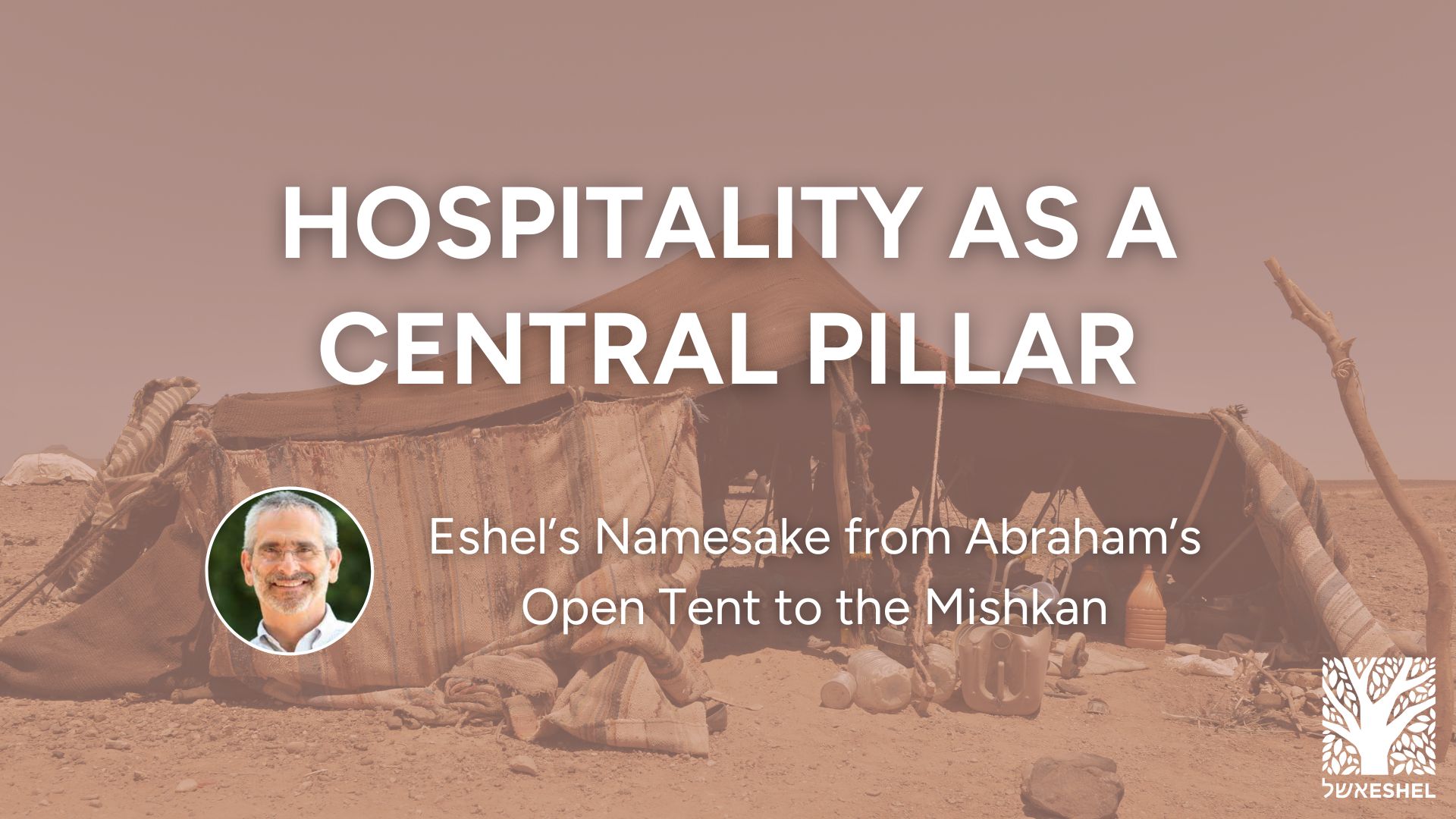
“And He (Abraham) planted an eshel (tamarisk) in Beersheba, and he proclaimed there the name of the Lord, God of the universe” (Genesis 21:33).
Every year, when we read Parshat Vayera, we are reminded of why we chose the eshel tree as our namesake. In the Torah, the eshel is an ancient welcome sign. In this week’s parsha, Abraham plants an eshel, a tamarisk tree, as a sign for wayfarers. The pink and white blossoms of the tamarisk could be seen from afar in the desert, and signaled to travelers that food, water, shade, and rest could be found there.

This theme of offering hospitality to strangers on the road is central to Parshat Vayera. The parasha begins when Abraham and Sarah welcome three dusty strangers into their tent and rush to prepare a lavish meal for them. They soon discover that the recipients of their care are angels.
This story is more than merely the biblical source for the mitzvah of hachnasat orchim, the welcoming of guests, or a moral lesson. Abraham and Sarah’s fearless generosity to total strangers is seen as foundational to the covenant, a perfect foil to the xenophobia and cruelty of Sodom and Gemorrah that shortly follows.
Abraham and Sarah’s hospitality goes beyond a generous response to a group of strangers who knock at their door. By planting the eshel tree, Abraham and Sarah make a statement actively encouraging guests to join them. Abraham and Sarah’s tent is to be an oasis, a bed and breakfast, a refuge. Rabbi Azariah in Midrash Tehilim (110) reads the word eshel as an acronym for achila (eating), shtiya (drinking), and lina (rest). In the Talmud (Sota 10a), we learn that eshel is connected to the root word shaal, meaning request – whatever one would request, one would receive. Rabbi Nehemya and Rabbi Yehuda each understood what the eshel was differently – one said the Eshel was an orchard providing any manner of fruits one could desire, and for the other it was an inn offering meat, warm bread and sweet cakes.
In each understanding of the word eshel, the key to Abraham and Sarah’s mission was opening doors, welcoming people in, and going above and beyond in the service of others’ needs.
The Targum of Yonatan ben Uziel illuminates the lasting impact of this hospitality. He relates that Jacob visited the tamarisk grove planted by his grandfather on his way to Egypt, cut down the eshel tree, and took it with him. After 240 years, when the Israelites left Egypt, they took the eshel with them and when they built the Tabernacle, the mishkan, it was the eshel that became the bariach hatichon, the central beam that holds the entire structure together. Indeed, this is why the planting of the Eshel ends with prayer: “And Abraham planted an Eshel in Beersheba, and there he proclaimed the name of the Lord, God of the universe” (Genesis 21:33).
Abraham and Sarah’s hospitality is the beginning of our story as a people. It is not merely a lesson in Jewish values – it is a central pillar, the value that underpins the very foundation of the mishkan. Welcoming in the stranger makes it possible for us to call Hashem the God of all. This year, may we remain a people who open doors, who greet the stranger with care and concern, and who, in the words of Rabbi Jonathan Saks, “make space for difference”. May the depths of our commitment to welcoming others allow us to proclaim the name of the Lord, God of the universe.

